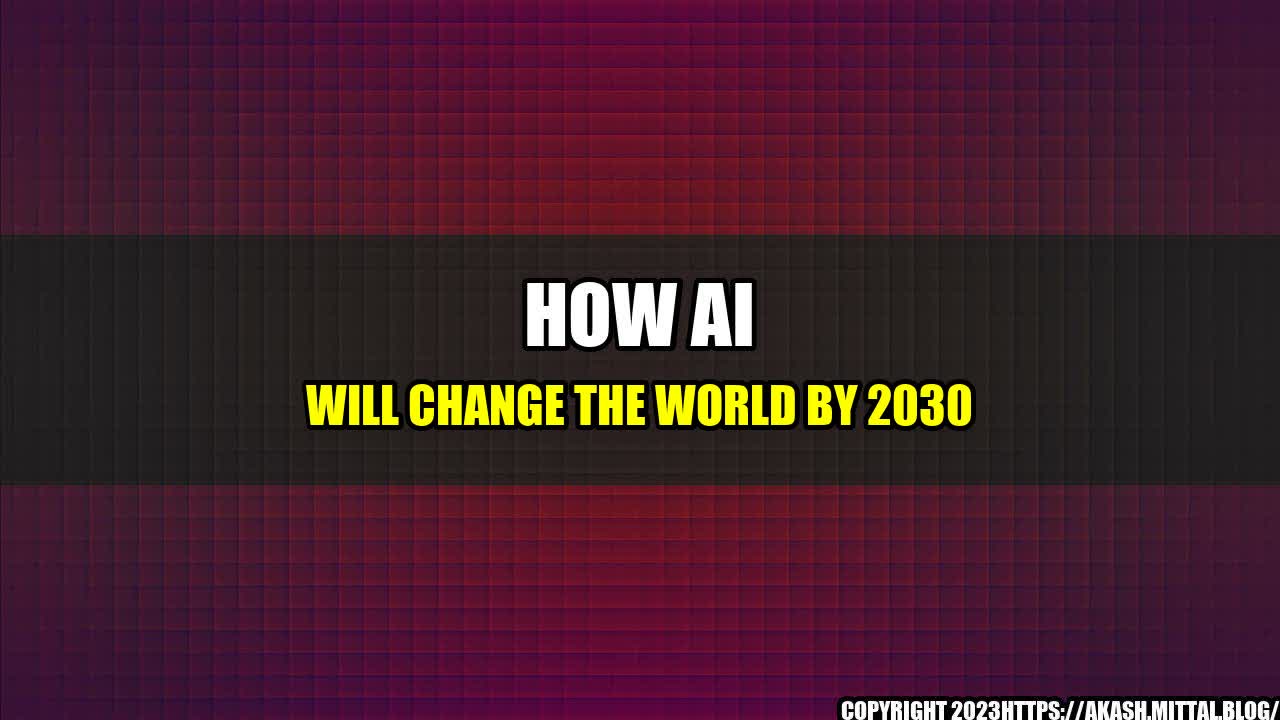The Rise of AI: An Interesting Story
In 2016, a computer program called AlphaGo defeated a world champion in the ancient Chinese game of Go. The champion, Lee Sedol, had won 18 world titles and was considered the best player of his generation. Many experts had thought it would be at least another decade before a computer could beat a top human player, but AlphaGo's victory came much sooner than expected.
This event was a turning point in the field of artificial intelligence (AI) and showed the world what was possible with machine learning and advanced algorithms. Since then, we have seen rapid progress in AI research and development, and experts predict that by 2030, AI will have changed the world in ways that we can't even imagine today.
AI's Impact
To give you an idea of how AI will change the world by 2030, here are some quantifiable examples:
- Self-driving cars will make up 25% of cars on the road
- AI-powered virtual assistants will handle 80% of customer interactions
- AI-powered medical diagnostics will reduce diagnostic errors by 50%
- AI-powered predictive maintenance will reduce equipment downtime by 30%
- AI-powered fraud detection will save the financial industry $1 trillion per year
and Case Studies
While these statistics are impressive, they don't really capture the full impact that AI will have on our lives. To get a better understanding, let's look at some personal anecdotes and case studies:
- John is a truck driver who has been driving for 20 years. He enjoys traveling the country and seeing new places, but the long hours and time away from home can be tough. When he hears about self-driving trucks, he is initially skeptical. But after trying out a self-driving truck on a test run, he realizes how much easier and safer the job could be. He also realizes that he could spend more time with his family and pursue other interests.
- Sara is a small business owner who spends hours each day answering customer emails and phone calls. She is constantly juggling multiple tasks and often feels overwhelmed. When she starts using an AI-powered virtual assistant, she is amazed at how much more efficient she becomes. The virtual assistant can handle routine tasks, answer common questions, and even schedule appointments. Sara now has more time to focus on growing her business and taking care of her customers.
- Tom is a doctor who has been practicing for 30 years. He has seen the field of medicine evolve rapidly over the years, but he is excited about the potential of AI. When he starts using an AI-powered medical diagnostic tool, he is impressed by how accurate and efficient it is. The tool can quickly analyze patient data and provide a diagnosis, which saves Tom time and helps him make better treatment decisions. He also sees how this tool could help doctors in rural or underserved areas provide better care to their patients.
Conclusion: How AI Will Change the World by 2030
Based on the examples and anecdotes we've looked at, here are three key ways that AI will change the world by 2030:
- AI will automate many routine tasks, freeing up time for humans to focus on higher-level work and personal interests.
- AI will improve efficiency and accuracy in many industries, leading to cost savings and improved outcomes.
- AI will enable new forms of innovation and creativity that we can't even imagine today.

Curated by Team Akash.Mittal.Blog
Share on Twitter Share on LinkedIn